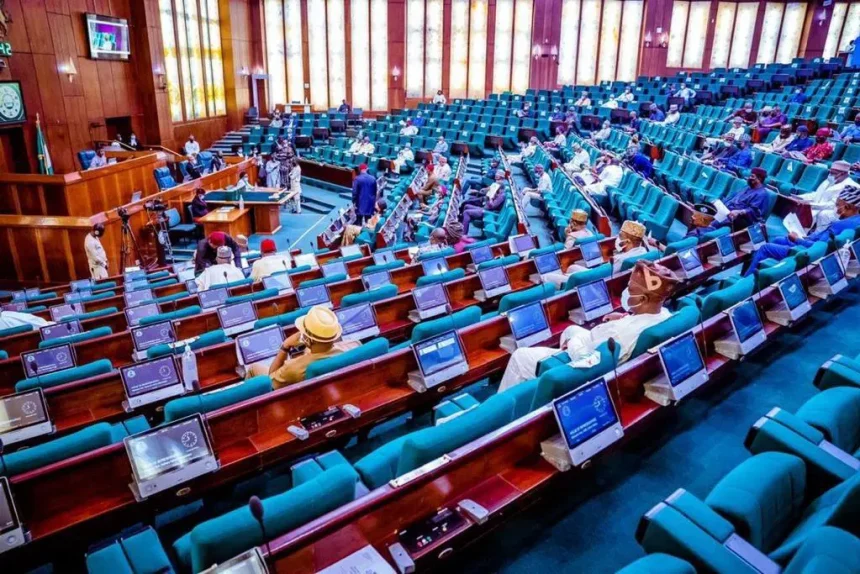Senator Opeyemi Bamidele, Leader of the Senate and Chairman of the Ad-hoc Committee investigating alleged economic sabotage within Nigeria’s petroleum sector, has revealed that both chambers of the National Assembly—the Senate and the House of Representatives—will now conduct the investigation jointly.
This collaborative approach follows the establishment of separate committees by both chambers in July 2024 to address the challenges plaguing the industry.
In a statement personally signed by him and released on Monday, Senator Bamidele emphasized the National Assembly’s renewed commitment to tackling inefficiencies in the petroleum industry.
He underscored the pressing need for comprehensive reforms, as Nigeria’s petroleum sector continues to underperform, largely due to widespread issues such as crude oil theft, protracted and costly turnaround maintenance of public refineries, the importation of substandard petroleum products, and frequent disruptions in fuel supply.
READ ALSO: Dangote Reflects on Missed Opportunity: “I Regret Not Buying Arsenal”
“As we fully resume parliamentary sessions this week, the National Assembly will, without ambiguity, revisit its decision to decisively address the numerous challenges facing the petroleum industry,” Senator Bamidele stated.
He further clarified that contrary to recent media reports, the Senate had not disbanded its Ad-hoc Committee investigating the alleged economic sabotage. Instead, the public hearing was postponed to address procedural concerns within the National Assembly.
“The committee’s work is far from over. We are merely refining the process to ensure a more robust investigation, and both chambers will now coordinate their efforts by forming a joint committee to continue where the Senate’s Ad-hoc committee left off.”
According to the senator, the primary goal of the investigation is to uncover the roots of economic sabotage within the petroleum industry and establish institutional mechanisms to make the sector more efficient and functional.
“This investigation is in the national interest. We are determined to expose the systemic issues that have undermined the industry’s growth and sustainability. Our aim is to develop lasting solutions that will promote transparency, accountability, and productivity in this vital sector,” Bamidele said.
In addition to the petroleum sector investigation, Senator Bamidele outlined other legislative priorities on the Senate’s agenda for the coming weeks. Among these is the review and consideration of the Medium-Term Expenditure Framework (MTEF) and Fiscal Strategy Paper (FSP), key components of the annual budget process.
The senator stressed the importance of this framework, noting that the timely consideration of MTEF is crucial to ensure that the 2025 Appropriation Bill can be presented to the National Assembly for approval.
“The MTEF occupies a central place in our legislative agenda because it forms the foundation for budget preparation,” Bamidele remarked. “We need to have the framework in place before the 2025 budget can be finalized.”
Another pressing issue on the legislative docket is the ongoing review of Nigeria’s 1999 Constitution. The senator reiterated the Senate’s commitment to constitutional reform, with the Constitution Review Committee, chaired by the Deputy Senate President, Senator Barau Jibrin, spearheading the effort.
The committee is expected to hold retreats and strategic sessions in the coming weeks, during which it will call for public memoranda and organize zonal consultations to gather input on specific sections of the constitution that require amendment.
READ ALSO: MrBeast, YouTube’s Mega Star, Hit with 54-Page Lawsuit: What’s at Stake?
Senator Bamidele expressed confidence in the abilities of the committee members, noting that the review process would adopt a truly federative approach aimed at reinventing public governance in Nigeria.
“Given the expertise and experience of the committee members, this review promises to be a thorough and meaningful exercise. It is an opportunity to redefine governance in Nigeria and align our constitutional framework with the realities of modern governance and the aspirations of our people.”
In his closing remarks, Senator Bamidele reiterated the Senate’s dedication to delivering tangible outcomes for the Nigerian people, both through the investigation into the petroleum sector and the broader constitutional review.
“We are fully committed to these tasks. Our mission is to ensure that Nigeria’s governance and critical sectors are transformed for the better, and we will pursue these objectives with diligence and transparency.”
With the Senate and House of Representatives now aligned on key national issues, the upcoming weeks are expected to be a period of intense legislative activity aimed at driving substantial reforms in Nigeria’s petroleum sector and beyond.

